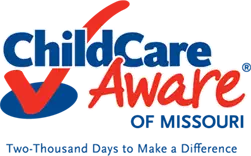How Missouri Child Care Centers Can Help Bilingual Families Rise
The sound of a child’s first words is a milestone for any family, but for an increasing number of households in Missouri, those first words may be in more than one language. Of course, Missouri is becoming more culturally and linguistically diverse, and with this beautiful change comes a crucial question for parents: How can we find child care that not only accommodates our child’s linguistic heritage but actively celebrates it?
Many families in Missouri, worried that their child’s home language might be lost or that they won’t receive the support needed to navigate two different cultures. The truth is, a child’s early years are the perfect time to build a strong foundation in both their home language and English. Rather than being a challenge, bilingualism is a remarkable gift that offers significant cognitive, social, and academic advantages.
This blog post explores the powerful benefits of bilingualism and shows how Missouri child care providers are becoming key partners in helping our youngest learners unlock their full potential.
The Bilingual Advantage: More Than Just Two Languages
It’s a common misconception that learning two languages at once can confuse a young child. In fact, extensive research shows the exact opposite is true. For children, the brain is like a sponge, and being exposed to multiple languages offers a host of cognitive, social, and emotional benefits that can last a lifetime.
Cognitive Benefits: A Stronger, More Flexible Mind
Managing two separate language systems at once is a powerful workout for the brain. This constant practice of switching between languages helps to strengthen what researchers call executive functions, a set of mental skills that includes:
- Problem-Solving: Bilingual children are often more creative and flexible in their approach to solving problems, as they are used to looking at a situation from different angles.
- Enhanced Focus: They demonstrate improved attention and the ability to tune out distractions, a skill they develop from having to select the correct language for a given conversation.
- Improved Memory: Juggling words, grammar, and sentence structures in two languages helps to build a stronger working memory, which is a key component of academic success.
Social and Emotional Benefits: Connecting to Family and Community
Beyond the cognitive advantages, bilingualism plays a critical role in a child’s social and emotional development.
- A Stronger Sense of Self: Maintaining their home language helps children connect with their heritage and cultural identity, which is essential for building confidence and a strong sense of self.
- Deeper Family Bonds: The ability to communicate with grandparents, extended family, and community members who speak their home language creates deeper emotional bonds and a sense of belonging.
- Increased Empathy and Open-Mindedness: Navigating two languages and cultures helps children become more empathetic and understanding of different perspectives. They learn early on that there is more than one way to see the world, which is an invaluable life skill in a diverse society.
How Missouri Child Care Centers Support Bilingualism
Building a child’s bilingual identity is a community effort. Missouri’s child care providers are stepping up as crucial partners by accommodating different languages and are actively creating environments where dual-language learners can thrive.
Creating a Language-Rich Environment
Quality child care centers understand that a supportive environment is essential for language development. This includes:
- Culturally Responsive Practices: Providers are increasingly trained to understand and celebrate the diverse cultures of the families they serve. This can mean integrating music, holidays, and traditions from a child’s home culture into the daily curriculum.
- Integrating Home Languages: Learning materials shouldn’t be limited to English. These centers are providing visual aids, books, and even songs in a child’s home language to make them feel comfortable and seen. A child who hears a story in their native language is more likely to engage with and enjoy the learning process.
- Bilingual Staff and Communication: Some child care centers are hiring bilingual staff members who can communicate directly with children and parents in their home language, and build trust and strong partnerships with families.
Building Strong Partnerships with Families
The most effective child care programs see parents as their most important partners. By working together, providers and families can ensure a consistent and supportive learning experience for the child. Here’s how:
- Encouraging Parent Involvement: Parents are encouraged to share their culture and language with the class. This could be as simple as sharing a traditional snack, or reading a book in their native language, making the child feel proud of their heritage and helping other children learn about different cultures.
- Home-to-School Connection: Missouri child care centers often encourage parents to continue using their home language at home. They may even offer tips and resources to help parents support their child’s language development at home, reinforcing the learning that happens at the center.
Now that you know what to look for, let’s talk about where you can find these supportive programs right here in Missouri.
Finding the Right Support in Missouri
When you start your search for child care, it can feel like a huge puzzle. However, for bilingual families, there’s an additional consideration: how can you ensure that your child’s care provider will cherish and nurture their home language?
At Child Care Aware of Missouri, we are on this mission, as your trusted partner, offering personalized guidance to simplify your search. We help you navigate the process for financial assistance and provide expert guidance by working with the Missouri Department of Elementary and Secondary Education (DESE), so you can always check a program’s official licensing status through their website.
When you visit a potential center, here are a few questions you can ask to get a feel for how they support bilingual families:
- How does your program support children who speak a language other than English at home?
- What training have your teachers received in working with bilingual children?
- How do you usually communicate with families who may not speak English fluently?
Conclusion: Your Child’s Bilingual Journey
The journey to a bilingual future starts with finding the right support. By choosing a child care program that celebrates the heritage, you empower your child with a lifelong gift. At Child Care Aware of Missouri, we are here to help you take that step in building a bilingual future for your family.




